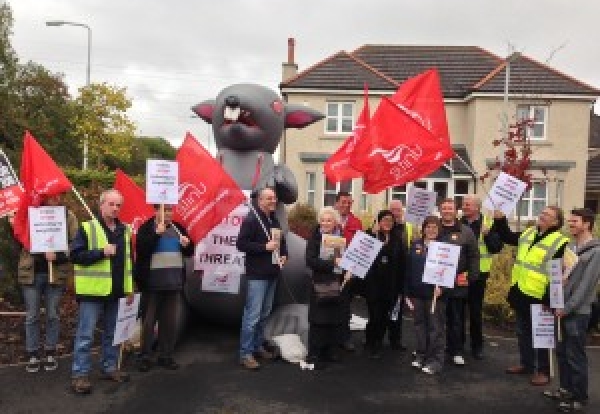The pledge comes as the Enquirer can reveal the full scope of Unite’s controversial tactics which could be used to disrupt major jobs like the new Hinkley nuclear power plant.
A 360-page dossier seen by the Enquirer details a recent campaign waged against construction bosses on the Crossrail project in a dispute over alleged blacklisting by the Bam/Ferrovial/Kier joint venture.
The report details individual directors of the firms and calls for demonstrations outside their homes and offices.
It also suggests targeting key clients, suppliers and subcontractors and outlines a policy to “attack Kier”.
The report states: “Kier are the smallest of the three target companies and the only company whose HQ is in Britain, making them vulnerable to sustained lawful action.
“Any threat to Crossrail contracts is serious for Kier – lawful demonstrations at key BFK contracts would cause genuine concern.”
The strategy added Unite should “seek to isolate and target Kier wherever possible.”
The dossier was drawn-up by Unite’s National Organising and Leverage Department
The group honed its tactics during the BESNA dispute in the M&E industry last year when contractors caved-in after protests outside clients’ offices and the homes of company directors.
It has since been successful at Crossrail and hit the headlines again last month following a campaign of direct against managers during the Grangemouth oil refinery dispute.
One industrial relations expert said: “Unite activists know these tactics work and are not going to stop using them.
“They will target anyone to get a result so you could see flashpoints all over the country.
“Hinkley is an obvious one because it is such a high-profile job.”
Unite leader Len McCluskey is adamant that “leverage” tactics are here to say.
He said: “The most important thing to say about Unite’s leverage strategy is this: Leverage has worked. Leverage has won.
“It won at BESNA and it won at Crossrail.
“That is why it is now being attacked – because it is working.
“Leverage is about telling the bad bosses that they have nowhere to hide, challenging their conduct with shareholders, with clients and customers.”

.gif)












 (300 x 250 px) (1).gif)







































